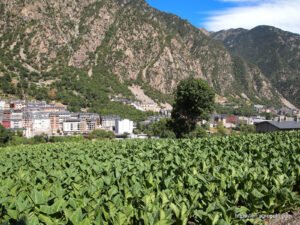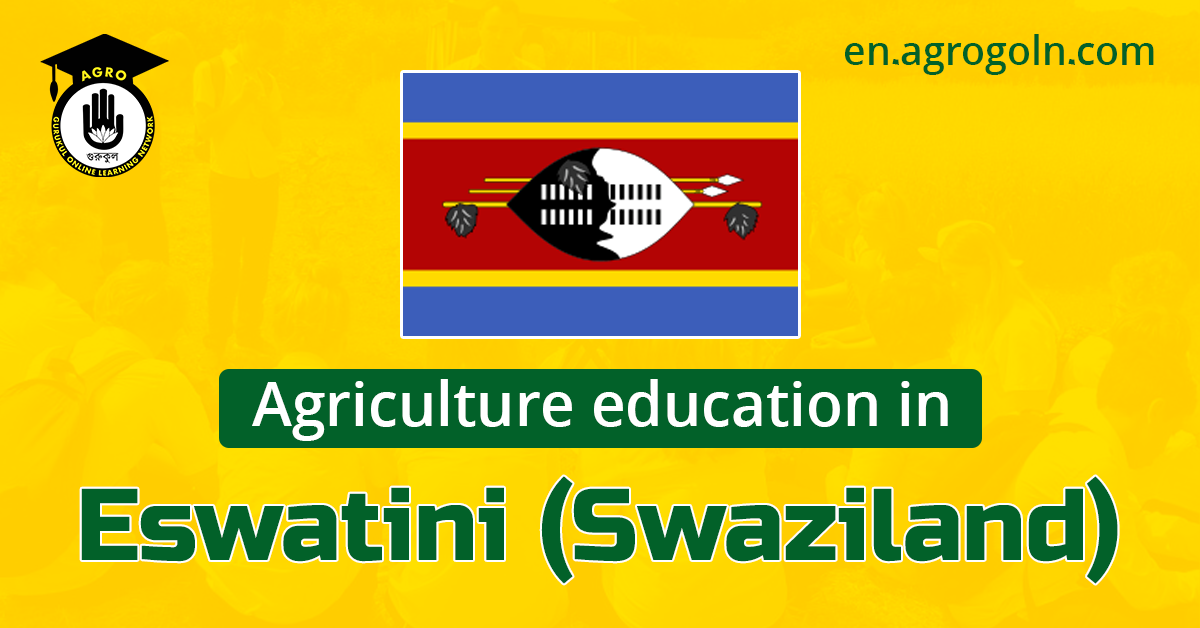Agricultural Education in Eswatini (Swaziland).Eswatini, formerly known as Swaziland, is a small landlocked country in southern Africa. Despite its small size, agriculture has always been the backbone of its economy. The majority of its population is engaged in subsistence farming, which means that agricultural education is crucial for sustainable development and food security in the country. This article delves deep into the state of agricultural education in Eswatini, its importance, challenges faced, and possible solutions for the future.
Agricultural Education in Eswatini (Swaziland)
Historical Context
Historically, the Swazi people practiced subsistence farming, relying mainly on traditional knowledge passed down from generation to generation. However, with the advent of colonial rule and post-independence modernization, there was a need to formalize and improve agricultural practices. The government and various non-governmental organizations (NGOs) realized the importance of agricultural education as a means to achieve sustainable development and improve living standards.

Importance of Agricultural Education in Eswatini
- Economic Stability: Eswatini’s economy heavily depends on agriculture. It’s not just about food production but also exports like sugar, citrus fruits, and cotton. Proper agricultural education ensures that farmers can maximize their yields, reduce losses, and ensure the country’s economic stability.
- Food Security: With increasing population and challenges posed by climate change, there’s an urgent need to adopt modern and efficient farming techniques. Education in agriculture equips farmers with the knowledge to tackle these challenges, ensuring food security for the nation.
- Environmental Conservation: Modern agricultural education isn’t just about maximizing yields; it’s also about sustainable farming. This means techniques that maintain, if not improve, the health of the soil, use water efficiently, and minimize the use of harmful pesticides and fertilizers.
- Employment: As one of the major sectors in the country, agriculture offers employment to a large section of the population. Proper education and training can lead to more job opportunities within the sector – from farming to agri-business.
State of Agricultural Education in Eswatini
There are several institutions and initiatives in Eswatini that focus on agricultural education:
- Formal Education: There are agricultural faculties in tertiary institutions, like the University of Eswatini, that offer diploma and degree programs in agriculture and related fields. These programs cater to those who aim for a professional career in agricultural research, management, or agribusiness.
- Vocational Training: Apart from universities, there are vocational training centers that provide hands-on training in various agricultural practices. These centers aim at equipping individuals with practical skills, such as animal husbandry, crop cultivation, or farm machinery operation.
- Extension Services: The government, with the support of NGOs, runs agricultural extension services. These services focus on reaching out to farmers in their fields, providing them with advice, training, and information on the latest farming techniques and technologies.

Challenges Faced
- Resource Limitation: Eswatini, being a small country with limited resources, often faces challenges in terms of funding and infrastructure for agricultural education.
- Traditional Resistance: Some farmers, especially the older generation, are resistant to new techniques and knowledge, preferring to stick to their traditional ways.
- Climate Change: With unpredictable weather patterns and increased droughts, imparting education on adaptive agricultural techniques becomes both crucial and challenging.
- Access to Modern Technology: While the world moves towards tech-driven agriculture, access to modern farming equipment, and technology remains limited in many parts of Eswatini.
- Land Issues: Land ownership and access can be complex in Eswatini, which can pose challenges for implementing certain agricultural educational programs or techniques.

The Way Forward
- Strengthening Institutional Frameworks: There’s a need to invest more in agricultural institutions, both in terms of funding and infrastructure.
- Community Engagement: Engaging community leaders can help in breaking the resistance to modern agricultural practices. They can act as role models and influencers within their communities.
- Collaboration with International Organizations: Partnerships with international agricultural organizations can provide both funding and expertise, helping in the betterment of agricultural education in the country.
- Incorporating Technology: From using mobile apps for weather predictions to utilizing drones for crop surveillance, technology can play a vital role in modern agriculture. Ensuring that the agricultural curriculum incorporates such technological advancements is crucial.
- Focus on Sustainable Agriculture: The future of agriculture lies in sustainable practices. Educational programs must prioritize this, ensuring that the next generation of farmers is well-equipped to farm in a manner that’s beneficial for both the environment and the economy.
Conclusion
Agricultural education in Eswatini has come a long way from its traditional roots, but there’s still a long way to go. With the right interventions, support, and forward-thinking strategies, Eswatini can ensure that its farmers are well-equipped to face the challenges of the future, ensuring food security, economic stability, and sustainable development for the nation.
